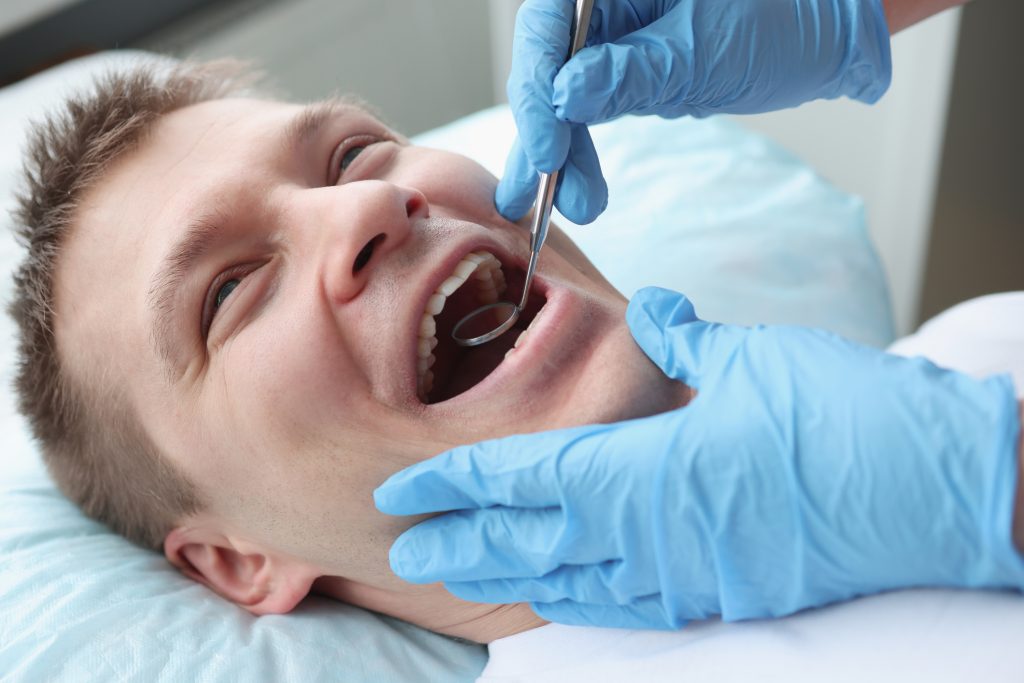OROFACIAL PAIN SPECIALIST:
Chewing System Orthopedics
Most dentists are comfortable treating muscle and minor joint pain. Following are some additional topics to discuss with your dentist.
COMPLEXITY:
If you are struggling with any of these complex pain issues, the team at Raleigh Facial Pain specializes in in providing solutions and treatments.
There is no doctor that can mange chronic pain by him/her self. It takes a team of professionals that look at chronic pain from their specialty point of view. The basic team consists of the patient, physical therapy, biofeedback, and chewing system orthopedics (the care at Raleigh Facial Pain). It requires communication across the lines of medicine and dentistry. Often insurance does not pay for this extra level of care.
I have studied anxiety my entire life having grown up as an anxious kid. When studying chronic pain, it became evident that pain and anxiety have a relationship. The psychology of health habits is an entire area of study; based on science and practical experience. Levels of anxiety, stress, emotional hijacking, and PTSD affect our pain. Amazing how our emotional brain programming from childhood so affects our ability to manage chronic pain, relationships, and happiness.
The Raleigh Facial Pain team is highly trained in the health fields and has a high degree of empathy for our chronic pain patients. Our caring is almost as important as the care we provide. The number one therapy provided is HOPE. We help our patients to understand their pain and provide hope of managing chronic pain. Patients must actively participate in their treatment plan; not just show up for appointments. After researching chronic pain, patients participate in developing the treatment plan to help them successfully manage their pain. When a patient crests the hill of health and see happiness on the other side, WOW, what a metamorphosis, what change.
Damage to lateral ligament of disc occurs due four major factors and four minor factors.
Four major factors: 1) Tension in muscles 2) Grind/clench 3) Neighboring pains 4) Trauma
Four minor factors: 5) Dual bites 6) Open lock 7) Occlusion 8) Pain escalation
Chronic Pain Formula 1) PAINS: Acute pain training focuses on structural damage in one area. Chronic pain focuses on many different pains.
2) ANXIETY: Often medical is seen as "the way" to treat anxiety, but there are many integrative tools to manage sources of anxiety. 3) TRAUMA: Accumulated damage from multiple traumas, due to poor health habits. 4) HEALTH HABITS: These establish the body's ability to heal from daily damage to the body as well as traumas.
Patients often want to be fixed, but quick fixes don't last.
OROFACIAL PAIN SPECIALIST:
Chewing System Orthopedics
Most dentists are comfortable treating muscle and minor joint pain. Following are some additional topics to discuss with your dentist.
COMPLEXITY:
If you are struggling with any of these complex pain issues, the team at Raleigh Facial Pain specializes in in providing solutions and treatments.
There is no doctor that can mange chronic pain by him/her self. It takes a team of professionals that look at chronic pain from their specialty point of view. The basic team consists of the patient, physical therapy, biofeedback, and chewing system orthopedics (the care at Raleigh Facial Pain). It requires communication across the lines of medicine and dentistry. Often insurance does not pay for this extra level of care.
I have studied anxiety my entire life having grown up as an anxious kid. When studying chronic pain, it became evident that pain and anxiety have a relationship. The psychology of health habits is an entire area of study; based on science and practical experience. Levels of anxiety, stress, emotional hijacking, and PTSD affect our pain. Amazing how our emotional brain programming from childhood so affects our ability to manage chronic pain, relationships, and happiness.
The Raleigh Facial Pain team is highly trained in the health fields and has a high degree of empathy for our chronic pain patients. Our caring is almost as important as the care we provide. The number one therapy provided is HOPE. We help our patients to understand their pain and provide hope of managing chronic pain. Patients must actively participate in their treatment plan; not just show up for appointments. After researching chronic pain, patients participate in developing the treatment plan to help them successfully manage their pain. When a patient crests the hill of health and see happiness on the other side, WOW, what a metamorphosis, what change.
Damage to lateral ligament of disc occurs due four major factors and four minor factors.
Four major factors: 1) Tension in muscles 2) Grind/clench 3) Neighboring pains 4) Trauma
Four minor factors: 5) Dual bites 6) Open lock 7) Occlusion 8) Pain escalation
Chronic Pain Formula 1) PAINS: Acute pain training focuses on structural damage in one area. Chronic pain focuses on many different pains.
2) ANXIETY: Often medical is seen as "the way" to treat anxiety, but there are many integrative tools to manage sources of anxiety. 3) TRAUMA: Accumulated damage from multiple traumas, due to poor health habits. 4) HEALTH HABITS: These establish the body's ability to heal from daily damage to the body as well as traumas.
Patients often want to be fixed, but quick fixes don't last.

 Raleigh Facial Pain © 2025 All Rights Reserved.
Raleigh Facial Pain © 2025 All Rights Reserved.